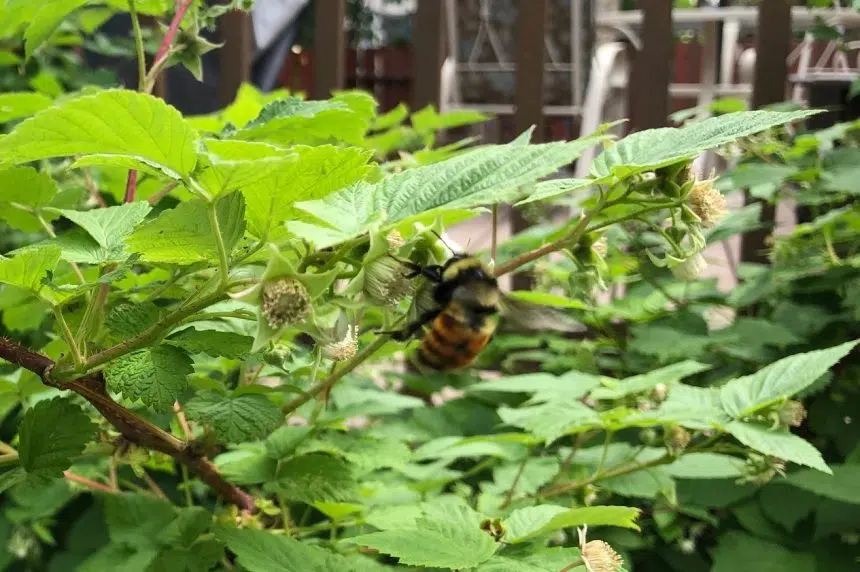Christine Rybchuk’s honey bee farm near Craven is generating a lot of buzz — literally.
Rybchuk told the Greg Morgan Morning Show on Monday she thinks it’s going to be a good year.
She also said even though she has been really busy, bee farming is enjoyable.
“We have a bit of a late spring this year, as we do often,” she added. “But we try to make it work as best we can.”
Rybchuk’s farm produces raw honey, which she said isn’t heated to preserve all the nutrients that would’ve been lost by heating it.
“I take the beehive and I take the frames out of the beehive in the fall,” Rybchuk added. “Then we scrape off the top layer, which is sealed with the wax, and that’s how the bees seal their honey. And it can be stored for hundreds even thousands of years when it’s been cured properly.”
She said the next step in the honey-making process would be to spin the frames inside a drum, making the honey come out and go into containers.
“I use … a mesh strainer and that’s just to take … the big chunks of wax out of it,” she said. “(People) will find in my honey little pieces of wax and all the pollen that the bees collect gets stuck in the honey and in the wax and I keep that in my honey as well.”
Rybchuk said people who are immunocompromised or are elderly with a weakened immune system should stick to regular, pasteurized honey.
She added alfalfa honey is one of her favourite kinds of honey.
“I find it to be a nice mild honey, so it’s a nice light colour as well,” Rybchuk said. “It’s kind of palatable for anybody.”
When asked about whether she’s worried about bees disappearing from the province, Rybchuk replied saying she’s not too worried about it.
“Last year, we only had 90 days on my property (with) no frost. We had a frost on June 7 and Sept. 7 that killed all the flowers,” she said. “Three months is a very, very short year for bees to really get out there and collect their pollen and the nectar that they need and build up their next generation.”











